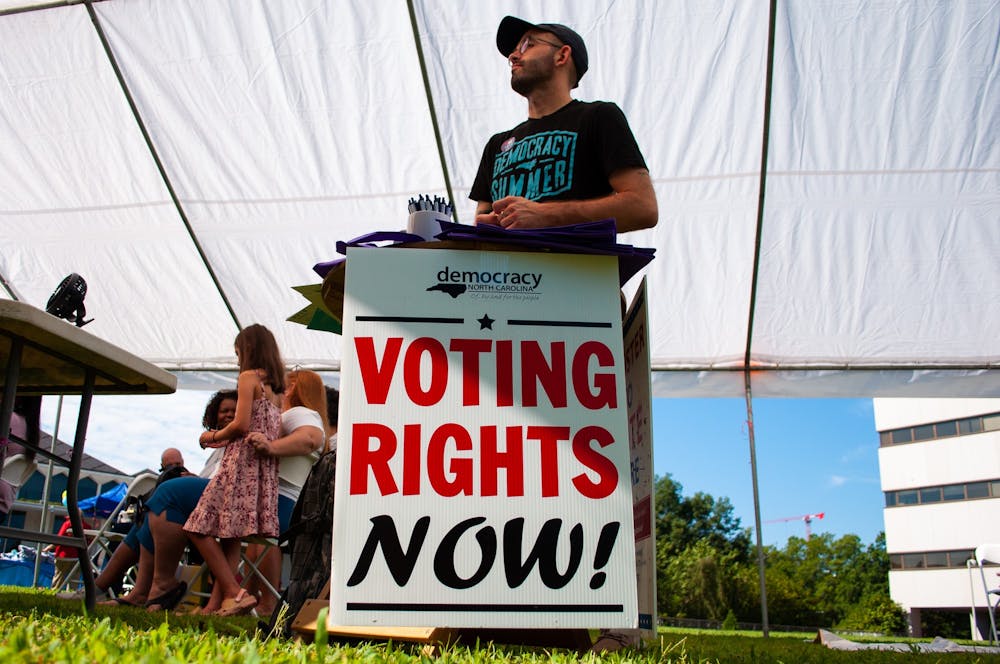The North Carolina Supreme Court heard oral arguments on Aug. 31 in a lawsuit adjacent to the long-running Leandro v. State of North Carolina case.
On Nov. 10, 2021, N.C. Superior Court Judge David Lee ruled that $1.7 billion should be invested into education by the state. However, Lee's decision was appealed, stopping the money from actually being invested.
On Wednesday, lawyers primarily argued over whether or not the court has the authority to force the state legislature to pay the remaining money ordered by Lee to be allocated towards school funding.
“One of the key things here is that this case is not weighing whether or not we need to invest more in education,” Mary Ann Wolf, president and executive director of the Public School Forum of North Carolina, said. “What the appeals are about is who can make the legislature adequately fund our schools.”
The 2004 ruling by Judge Howard Manning on Leandro, dubbed “Leandro II,” affirmed that the state is obligated to provide adequate funding for public education.
The defendants and plaintiffs debated on Wednesday about whether that ruling's influence extended beyond Hoke County, the plaintiff in the 2004 ruling and one of the five original counties in the first Leandro trial.
“I believe Leandro II is actually another example of deference from the courts,” Amar Majmundar, an attorney representing the plaintiffs, said. “The last line of that opinion says it remains to be seen if the state will follow through. Time after time, year after year we kept failing.”
Melanie Dubis, another attorney representing the plaintiffs, supported Majmundar’s argument by referencing the fact that there are thousands of vacant teaching and staff positions in North Carolina public schools.
“Last year there were over 3,000 vacant teaching positions across the state of N.C.,” she said. “Based on evidence such as that, Judge Manning and Judge Lee concluded that there are not teachers in every classroom in N.C. That is what Leandro II said is one of the things to look at, among others, and the state, therefore, is not providing the opportunity to a sound basic education.”




